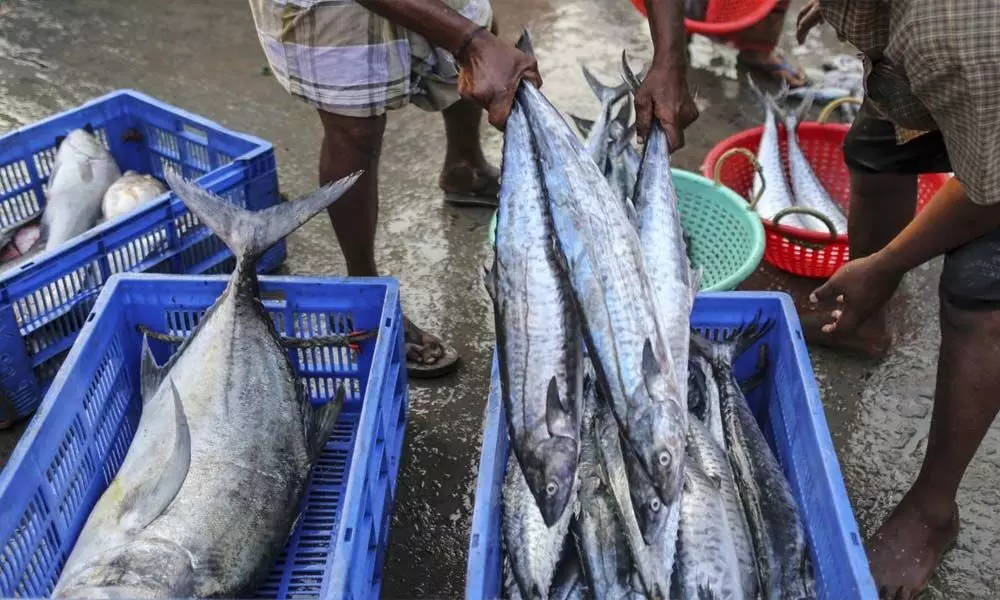India to oppose scrapping of fishing subsidy at WTO
Seek more time to phase out incentives at WTO talks. Negotiations missed 2020 deadline for an outcome on subsidies
image for illustrative purpose

India will oppose any immediate move to scrap subsidies for fishermen in developing nations as the World Trade Organization discusses ways to preserve global fish stocks, including ending government funding that enables overfishing, people with the knowledge of the matter said.
At a meeting of trade ministers Thursday, India will insist for more time to phase out subsidies to cushion the impact on local industry and protect livelihood of millions of poor fishermen, the people said, asking not to be identified as the matter is not public. New Delhi will also argue that developed countries, which provide huge subsidies, must take the responsibility of significantly cutting it down to control overfishing. A spokesperson for the nation's commerce ministry could not be immediately reached for a comment. The talks at the Geneva-based trade body missed an earlier deadline of 2020 and have now gathered pace with its new director-general Ngozi Okonjo-Iweala warning that the fisheries negotiation is something of a bellwether for the future of the organization. A new sense of urgency to reach an agreement on the issue - under discussion for almost two decades - is also owing to world's fish populations steadily falling below sustainable levels.
The UN Food and Agriculture Organization data shows that the world's fish ecosystem is at a risk of collapsing due to overexploitation. One of the key reasons for the problem is massive subsidies provided by governments each year - amounting to an estimated $14-$54 billion globally per year and largely benefiting large-scale fishing operations while discriminating against smaller ones.
While, the developed economies like the US and the EU have argued that all nations should do away with fishing subsidies linked to overcapacity and overfishing, developing countries have made a case for being exempted from such restrictions.
India has also sought more time to implement disciplines on proposed prohibition of subsidies for fishing in exclusive economic zones and complete exemption on fishing activities in territorial waters, which is considered as 12 nautical miles from the sea shore. The sector in India provides direct employment to about 16 million fishermen and fish farmers and indirect jobs to around 32 million.
New Delhi will oppose developed nations' proposal of forging government-to-government access agreements wherein two countries can enter into a pact for fishing activities. (Bloomberg)

